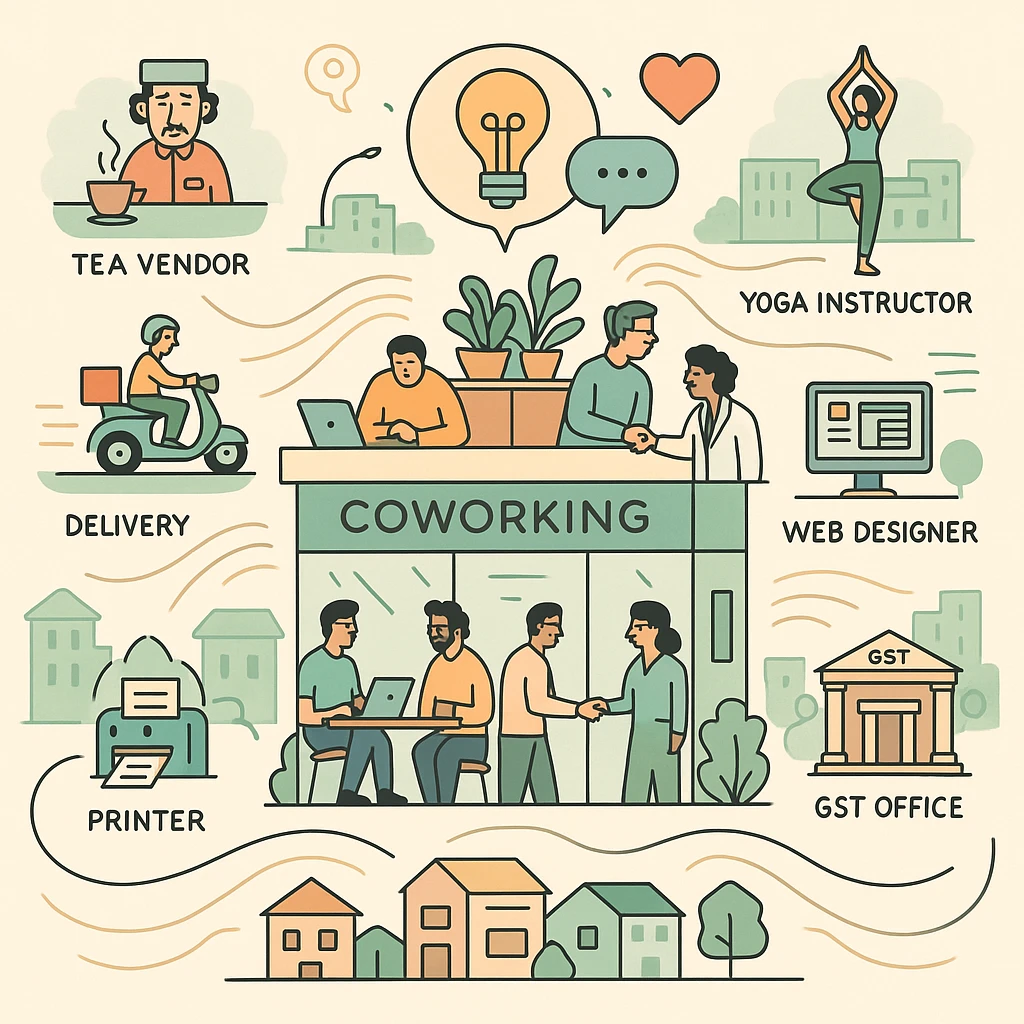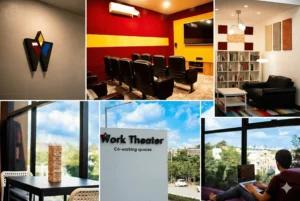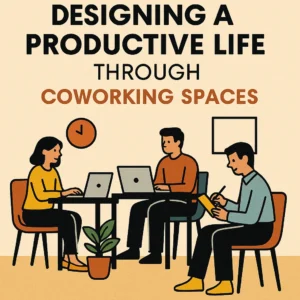Coworking, once a fringe experiment born in artist lofts and garages, has evolved into a foundational pillar of urban business infrastructure. But beyond the optics of glass walls and bean bags lies a more profound impact—coworking spaces are quietly transforming local business ecosystems.
In Bangalore, often hailed as the Silicon Valley of India, this transformation is particularly visible. The city’s flexible workspace movement is not merely solving for desks—it’s enabling networks, breathing life into small enterprises, and fostering dense ecosystems where ideas, capital, talent, and trust circulate with velocity.
Let’s explore how.
The Local Ripple Effect of Coworking
At its core, coworking is about intentional proximity. People from varied professions, disciplines, and industries—developers, designers, filmmakers, solopreneurs, freelancers, content creators, financial advisors—share not just a space, but conversations, rituals, and serendipitous discoveries.
Every interaction in a coworking environment holds the potential to ripple outward, impacting:
- Local supply chains
- Vendor relationships
- Talent marketplaces
- Neighborhood economies
- The very nature of startup formation
A Harvard Business Review study highlights that businesses located in or near plus and play spaces grow 3.5x faster than isolated setups due to proximity-based collaborations and vendor partnerships.
From One Desk to a District: Coworking’s Geographic Gravity
These shared spaces act as gravity centers—magnetizing professionals, businesses, vendors, and services to specific areas. When strategically located in neighborhoods like JP Nagar, Koramangala, or Indiranagar, they revive entire streets.
- Local cafes, printers, and supply vendors thrive off coworking footfall
- Logistics services evolve to cater to decentralized micro-offices
- Creative professionals and consultants find clients next door
For example, as discussed in our piece on how a shared office space fuels creative startups, the right physical space doesn’t just house ideas—it accelerates them.
Platform for Micro-Entrepreneurs and Solopreneurs
Theses work spaces also lower the barrier to entry for micro-businesses.
Whether it’s a freelance digital marketer working from our favorite freelancer-friendly coworking space or an artisan selling sustainable home decor, coworking enables them to present a professional front, conduct meetings, and even hire their first intern—without locking capital into traditional office leases.
This fluidity has led to an explosion of side hustles turning into startups, a trend we observed in our deep dive on freelancers thriving in coworking spaces.
A Living, Breathing Networking Engine
One of the underappreciated economic levers of coworking is its network effect. Community managers, meetups, spontaneous tea-time debates—these are not just culture, they are infrastructure.
In coworking spaces:
- A developer overhears a UX designer’s problem and offers a solution.
- A startup finds a part-time CFO.
- A real estate consultant meets a sustainability architect.
These aren’t LinkedIn connections—they are real-world collisions that birth joint ventures, vendor contracts, and advisory roles.
The Deskmag Global Coworking Survey reported that over 84% of coworkers felt more engaged and motivated, attributing this to informal interactions—often translating into revenue or client growth.
Fueling the Creative and Digital Economy
As Bangalore transitions deeper into a knowledge economy, coworking spaces double up as creative crucibles.
- Artists find solitude when needed and audience when ready.
- YouTubers and content creators set up studio-quality podcasts or shoot reels in media-friendly zones.
- Designers and architects sketch out ideas in break rooms that double as mini think-tanks.
In such spaces, the boundary between consumer and creator collapses, giving rise to ecosystems where feedback, growth, and monetization are intertwined.
Local Vendor Ecosystems and Service Networks
These workspaces are rarely self-contained. They rely on:
- Food vendors for pantry needs
- Housekeeping contractors
- Event organizers
- Local tech vendors for AV equipment
- Trainers, therapists, coaches
For instance, our analysis of coworking design through neuroscience reveals how the choice of ergonomic furniture or calming scents often leads to micro-vendor collaborations—from indie furniture brands to local wellness providers.
This vendor symbiosis not only enhances the workspace but supports hyper-local economies.
A New Breed of Community Capital
We often think of capital as money. But there’s social capital, intellectual capital, and reputation capital—and coworking spaces distribute them all.
When a bootstrapped founder rubs shoulders with an angel investor in the coffee lounge, or when an SEO consultant helps a fellow coworker rank a landing page—it’s non-monetary value creation at scale.
These non-linear, intangible exchanges are difficult to replicate in traditional offices or remote-only setups.
And they’re happening every day in clusters for:
Coworking and Local Business Resilience
Coworking injects adaptability into the local business landscape.
During COVID-19, many traditional offices shut down, but these flexible spaces rapidly pivoted:
- Offering virtual memberships
- Enabling businesses to downscale without disappearing
- Providing distributed teams with hybrid models
This made local businesses more resilient. When one sector stumbled, another could rise in the same ecosystem.
Hybrid Work and the Rise of Satellite Teams
With the post-pandemic shift, MNCs and startups are choosing hub-and-spoke models, where the “hub” is a core HQ, and “spokes” are distributed coworking outposts.
This not only decentralizes traffic and talent, but also distributes economic activity to Tier 2 neighborhoods.
In areas like Yelahanka or HSR Layout, new coworking centers are enabling:
- Local hiring
- Vendor relationships
- Economic upliftment away from traditional CBDs
Our post on how traders use coworking environments is a perfect example—showcasing how even non-startup communities find economic belonging in coworking.
Coworking as Infrastructure for the Informal Economy
Bangalore’s informal sector—gig workers, part-time freelancers, consultants—often lack formal addresses, legal entities, or professional environments.
Coworking solves for this:
- Offering registered addresses for GST
- Enabling document management and KYC compliance
- Providing reputation scaffolding
This brings thousands of workers into the economic mainstream, increasing visibility, tax participation, and growth potential.
Explore how coworking supports this in our guide on GST registration in Bangalore—where a coworking space becomes a compliance ally.
The Soft Power of Belonging
Ultimately, the role of coworking in local economies isn’t just transactional—it’s emotional. In a city where many come alone to build something new, coworking spaces are the social soil from which companies, careers, and communities grow.
This explains the rise in niche hubs:
- One-day coworking options
- Wellness-focused environments for therapists
- Affordable workspaces for small businesses
The variety isn’t a trend—it’s infrastructure for a diverse, thriving local economy.
Coworking as Local Economic Architecture
Coworking spaces are no longer just about shared Wi-Fi and open desks. They’ve matured into architectures of opportunity, fueling the informal and formal, the creative and commercial, the local and global.
In the coming decade, cities that invest in coworking infrastructure will find their local economies more resilient, inclusive, and innovative.
Bangalore is showing the way. One desk at a time.
If you need a workspace in Bangalore where you can have the ideal base for your business,
Call us to reserve your space at Work Theater
Explore our podcast
Learn more about our coworking space on our YouTube channel Work Theater Studios where we talk about a variety of topics including personal finance, entrepreneurship, business and life.
Fun fact! We also have a private theatre in Bangalore




